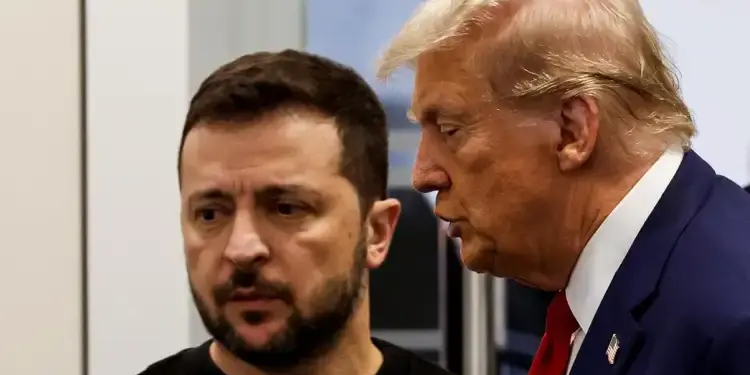During an interview with Sean Hannity on Fox News, Donald Trump threw a pavement in the pond by attributing to Volodymyr Zelensky the responsibility of the war in Ukraine, a statement that fuels speculations on his geopolitical intentions. According to the former president, the conflict could have been avoided if Zelensky had agreed to “capitulate” before the Russian invasion of 2022.
Trump said Zelensky “is not an angel” and that he “should not have let this war arrive”. Ignoring the fact that Russia initiated the offensive, he criticized the Ukrainian resistance in the face of a “much more powerful entity”. The ex-president even said that in place of Zelensky, he would have “easily concluded an agreement” with Vladimir Putin, thus minimizing the blatant violations of the 1994 agreements by Moscow.
Trump accuses Zelensky: Trump blames Zelensky for the war in Ukraine, evoking a refusal to negotiate before the invasion.
Call to an agreement: he offers a quick “deal” with Putin to end the conflict.
Geopolitical impact: His words arouse questions about his position towards Russia.
These words arise as Trump continues to position himself as a defender of quick negotiations to end the conflict. On his Truth Social platform, he recently insisted on the need for an immediate “deal”, adding that he would impose severe economic sanctions on Russia if the conflict continues.
However, his criticisms of Zelensky and his admiration displayed for Putin raise questions. Trump has always maintained ambivalent relations with the Ukrainian president, especially during the pressure of the pressure exerted on Kyiv in 2019. Today, his statements seem to be part of a strategy aimed at redoing the image of Putin and redefining the balance of forces between the United States, Ukraine and Russia.
While the international community unanimously condemns the Russian aggression and calls for the withdrawal of troops, Trump stands out by refusing to openly blame Moscow. His words, which flirt with a revision of historical reality, could prepare the field for a future American policy more favorable to the Kremlin. A posture which, far from eating tensions, risks further weakening Kyiv’s position on the international scene.
The military support of the United States in Ukraine, exceeding 65 billion dollars since 2022, is nevertheless part of a logic of defense of the international order in the face of the expansionist ambitions of Moscow. By rejecting the fault on Zelensky, does Trump play a calculated game to prepare a return to power or, even more serious, to redraw world alliances for the benefit of Putin? A question that deserves to be asked, while the shadow of 2025 is looming.








